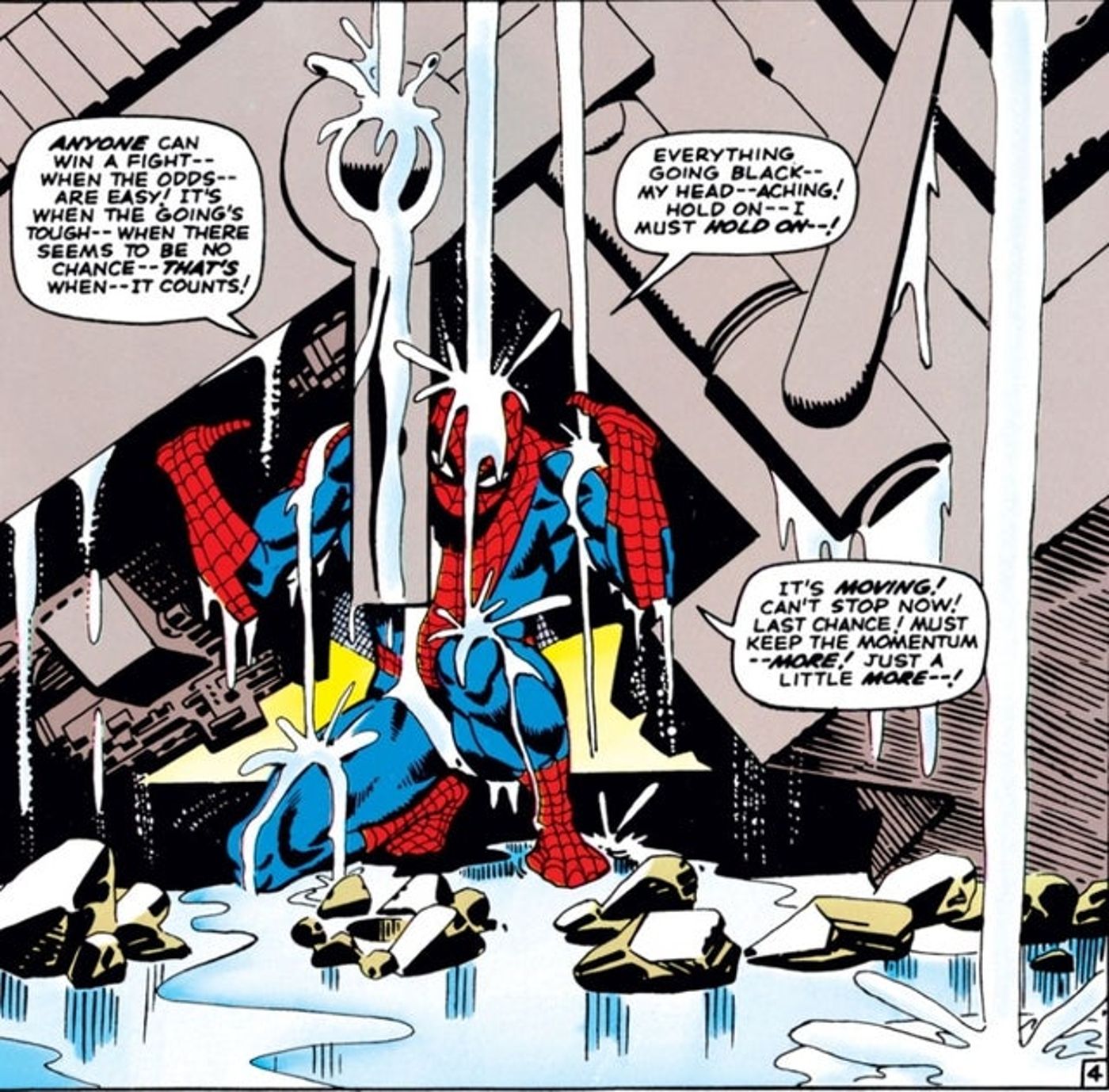Warning: Contains spoilers for The Amazing Spider-Man #87
The latest issue of The Amazing Spider-Man proves that Marvel Comics will never let Peter Parker be an accomplished hero. Be it his love life or his superhero activities, Spider-Man can never let go of the image of being a “loser” that has characterized him since his debut as a character in 1962.
When he first appeared, Peter Parker was a groundbreaking character in the superhero genre, where teenagers were usually relegated to the role of sidekicks. Peter, instead, was not only a high school student, but also a “nerd”: clumsy, spectacle-wearing, with a passion for science, and picked upon by the “jocks” of the school. This immediately resonated with the teenage demographic of comic books readers, making Spider-Man a hugely popular character. Even more revolutionary was the idea that Peter did not change that much after being bitten by the radioactive spider. He remained insecure, socially awkward, and his new powers actually made his life more difficult. Spider-Man’s true strength, in fact, is his ability to rise above anything that life can throw at him. In this sense, Spider-Man is completely different from an archetypical superhero, such as Superman. While Clark Kent is also clumsy and sometimes awkward, he is still a successful adult, and his heroic persona is respected and acclaimed by the whole world. Both Peter Parker and Spider-Man, on the other hand, struggle to find success and recognition.
This is as true today as it was 60 years ago when Spider-Man was first labeled a “menace” by The Daily Bugle. In The Amazing Spider-Man #87, by Zeb Wells, Carlos Gomez, and Brian Valenza, Peter is recovering from near-fatal battle injuries. Apparently, the weeks spent in a coma have been enough to make Peter forget how to be Spider-Man, despite the fact that he has been doing this since he was 15. This leads to the Black Cat and Captain America putting Peter through a crash rehabilitation course, consisting of daily obstacle races, fight practice, and even mock crime situations. While it is understandable that anyone would want to train with Captain America, one of the best fighters in the Marvel Universe, it doesn’t make much sense that Peter should be getting lessons on how to swing on a web by Felicia, who doesn’t even have superpowers (a fact that she even points out in the comic). What is even worse, passing this “course” is required for Peter to go back to being Spider-Man, with Felicia even holding on to his suit until she is satisfied with his progress.

The fact that anyone should decide if Peter is “worthy” of being Spider-Man is an insult to the character’s legacy. The reason why his ability to be a hero keeps getting questioned is that Marvel can not let go of the image of Peter as a loser, as it was established in the beginning, because there is a strong belief that this is what makes him resonate with readers. Spider-Man’s true appeal, however, goes beyond that. He is not a loser, but the hero of the losers. No other superhero is depicted so often as defeated, battered, humiliated. Spider-Man negates the idea itself of super-human, representing the most human things possible: failure, weakness, but also the indomitable will to overcome adversities. Rising up after being knocked to the ground is the most powerful cry of rebellion against mankind’s inherent fragility, and this is Spider-Man’s true legacy. There is no need to represent Peter Parker as a “loser” to convey that.
The fact that Peter is periodically pulled back to square one contradicts the character’s nature, as it makes readers pity him, or grow bored, rather than relate. Spider-Man has earned his spot in the hero community just as well as Peter has earned his spot in life as a successful adult. Marvel Comics should just let go of the “loser” stereotype, and recognize Spider-Man’s accomplishments.




